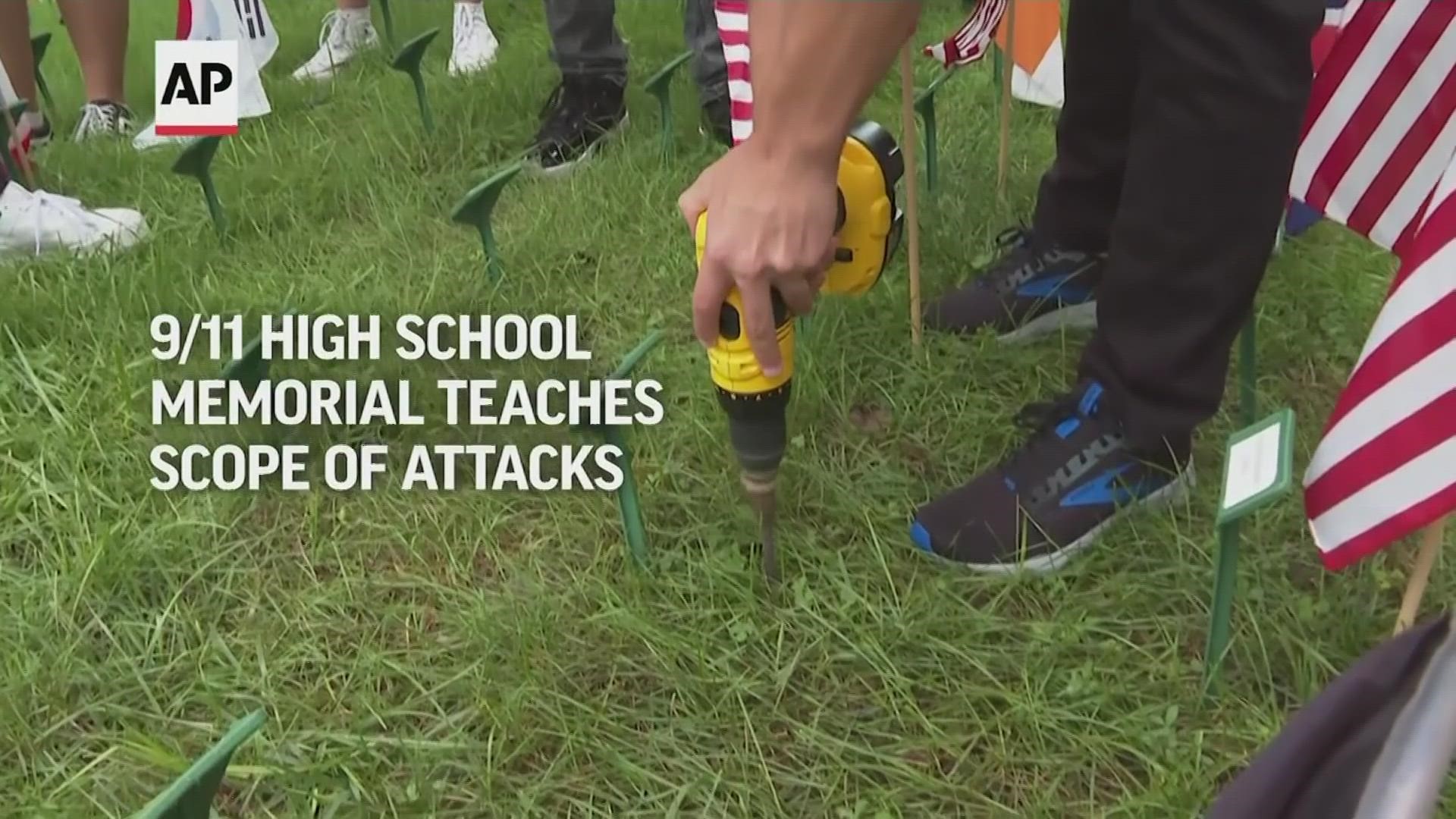TAMPA, Fla. — Saturday marks the 20th anniversary of the 9/11 terrorist attacks that claimed the lives of 2,977 people at the World Trade Center, the Pentagon and in Somerset County, Pennsylvania.
In the two decades since the attacks, an entire generation of children has grown up in a world after the act of terrorism changed the United States.
Children in school weren't born until years after the attacks. Because of this, how exactly do you teach them about the tragic day?
Here are tips on how to explain the events and significance of Sept. 11, 2001, across different age groups.
For preschoolers
First, find out what they know. "I always recommend asking what they know first, regardless of age," Dr. Lori Walsh, a clinical psychologist told the "Today" show. "Start with, 'Have you heard of 9/11?' That gives you a great jumping-off point."
Walsh then says parents should clear up any misconceptions they have about the day and keep it simple and succinct. There isn't any need to go into specific horrors or graphic details.
Walsh also said parents should end any conversation with the "message that they don't need to worry."
For elementary-aged students
As with younger children, find out what they know about Sept. 11 before you go into the topic.
Therapist Alyson Schafer told Parents magazine that it's important to give information using age-appropriate language.
"For young children, you might say, 'September 11 is a day when a big tragedy happened and lots of people died and it makes people very sad to remember,'" Schafer told the magazine.
The 9/11 Memorial & Museum says you should always answer questions about the attacks with facts. Again, as with even younger children, they likely won't understand the big picture yet. You should also avoid showing or discussing anything too graphic about the tragedy.
"It is important, then, to answer children’s questions about what happened with basic facts and age-appropriate language; don’t try to share all the information you know. Point older children to reliable sources of information for further research."
Also, you should ask them what they think and share their feelings.
For middle and high schoolers
Kids and teens in middle and high school can have more nuanced conversations about the tragic day itself and some of the context surrounding it, such as what terrorism is.
Walsh suggests limiting exposure to graphic video and images.
"Try as much as possible to steer them away from sensationalized coverage," Walsh told "Today." "Find some tasteful images that aren't exploitative or overly graphic."
The 9/11 Memorial & Museum says parents shouldn't avoid having difficult conversations with their children.
"Parents and caregivers understandably don’t want to cause anxiety and distress in their children. This often results in shying away from difficult conversations that we presume will provoke these emotions. It is terrorism itself, though, that is upsetting, not the conversations about terrorism. Invite the conversation with open-ended questions, such as 'What would you like to know?' or 'How does this make you feel?' Let the child’s interests and thoughts guide the conversation."
The 9/11 Memorial & Museum said it's also important for parents to acknowledge to their children, no matter how old, that we don't have all the answers. And, that's it's all right not to know the answer to every question.
"If you can’t answer your child’s question, be honest. Use the opportunity to model yourself as a learner, and explore the question together," the site reads.
Parents should also be attuned to their child's emotional state. "Children who have experienced trauma or loss, even if unrelated to terrorism, are at a higher risk of experiencing distress."
For more information and resources, click here.

